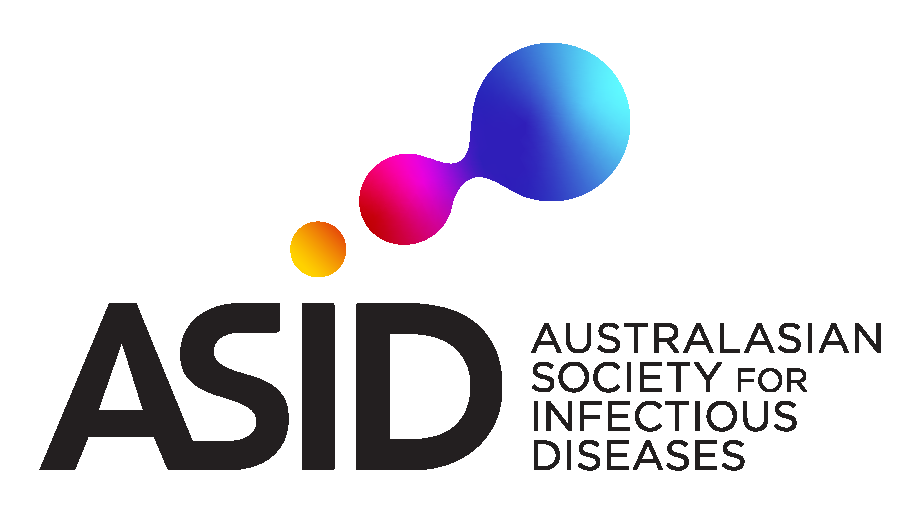
Zoonoses 2024
The 2024 Zoonoses Conference Crossroads of Contagion will feature education sessions with an emphasis on highlighting the importance of the intersection of human and animal interactions and health.
We are delighted to announce that headlining the conference is Dr Beth Cookson, Australia's Chief Veterinary Officer + Dr Paul Kelly, Australia's Chief Medical Officer + Prof Edward Holmes, leading Australian virologist.
Date: 5 and 6 July 2024
Location: University of Sydney
Accommodation options:
Rydges Camperdown
Veriu Camperdown
Adina Chippendale
Program: Check out the sessions that you won’t want to miss!
Registration:
Early Bird: $450 (ASID Members $350) closes 15 May 2024
Standard: $500 (ASID Members $400)
Subsidised rate: $100 for undergraduate and post graduate university students excluding RCPA/RACP (or other medical college) trainees or graduates.
Abstracts: Close 4 May 2024 Midnight (AEST)
Meet the Speakers
Click on the name for bios.
-
Professor Paul Kelly is a public health physician and epidemiologist with more than 30 years’ research experience. He has worked around the world in health system development and infectious disease epidemiology.
Paul was one of the leads in developing the FluCAN project – a national influenza surveillance system used by hospitals to track patients who are hospitalised with influenza. This work helps to determine the effectiveness of the yearly influenza vaccine. -
Dr Cookson has worked in various operational and policy roles in the department since 2006, most recently as Deputy Chief Veterinary Officer where she had a strategic focus on emergency animal disease preparedness in northern Australia and strengthening engagement within the Indo-Pacific region.
Dr Cookson is Australia’s Delegate to the World Organisation for Animal Health. -
Professor Edward Holmes is a world-leading authority on viral evolution whose work has transformed his field. He has revealed the fundamental processes of microbial evolution, determined the origin and evolution of major human pathogens including influenza, dengue and the AIDS virus, and shown how genetic and epidemiological data can be combined to radically improve our understanding of disease evolution. Edward’s work has enabled more accurate assessments of what types of viruses, and from which animal species, are most likely to emerge in human populations, and how they will evolve in response to our attempts to control them.
-
Shana Ahmed is a Project Officer in the Wildlife Disease Surveillance team at Wildlife Health Australia. After completing postgraduate studies in Conservation Biology at Macquarie University she has worked in a range of fields including eco-tourism, bush regeneration, environmental education, and wildlife rescue and rehabilitation. Shana is interested in wildlife health, welfare, and rehabilitation in the context of One Health and enjoys working in a multi-stakeholder environment.
She will be speaking on: Talking Bats: A Public Health Communication Guide. -
Dr Kneipp has been a veterinary clinician since graduating with a Bachelor of Veterinary Science from the University of Queensland. Initially working in Australia and the United Kingdom, since 1992 Cathy has lived and worked in regional Queensland as a partner in a mixed animal practice in Goondiwindi.
A general veterinary practitioner for over 35 years her chief interests lie in small animal medicine and surgery. She is currently completing a PhD on Brucella suis in dogs, at the University of Melbourne. -
Belinda Linnegar is a PhD candidate at Griffith University, interested in the interspecies transmission dynamics of zoonotic pathogens. Her current research investigates the role of domestic animals as bridging hosts for emerging zoonoses.
She will be speaking on: The bridge between wildlife and humans: the ecological dynamics driving Hendra virus transmission from bats to horses. -
Prof Nourse is a Paediatric Infection Specialist at Queensland Children’s Hospital in Brisbane and is is Clinical Professor in the Faculty of Medicine at the University of Queensland. Her particular interests are in HIV and TB infection in children, tropical infection and infection in resource limited countries, particularly in Timor-Leste.
-
Prof Norris is the Head of School and Dean of the Sydney School of Veterinary Science at the University of Sydney. She is a registered veterinarian and a specialist in veterinary microbiology from the Royal College of Veterinary Surgeons (UK). She is committed to practical research projects and education programs for veterinary professionals, animal breeders and animal owners.
Her main research areas include:
1) Epidemiology, diagnosis and treatment of companion animal viral and bacterial diseases including feline coronaviruses;
2) Multidrug resistant (MDR) Staphylococcus species in all animals including humans;
3) Prevention of Q fever and the role of companion animals and wildlife in the epidemiology; 4) Knowledge, attitudes and barriers to veterinary antimicrobial stewardship; and 5) Aetiology and diagnosis of kidney disease in domestic and zoo Felids. -
Prof Paterson directs ADVANCE-ID (ADVANcing Clinical Evidence for Infectious Diseases) at Saw Swee Hock School of Public Health. ADVANCE-ID is a clinical trials network comprising more than 40 hospitals across Asia. This network is jointly funded by the Wellcome Trust and a number of Singaporean institutions with an aim to conduct clinically important trials in the field of antimicrobial resistance (AMR). This comprises trials of antibiotics, diagnostics and prevention strategies.
He is also an Honorary Professor at the University of Queensland and has more than 600 peer-reviewed publications predominantly in the area of AMR. His research focuses on the molecular and clinical epidemiology of infections with antibiotic-resistant organisms, with the intent of translating knowledge into optimal prevention and treatment of these infections. Multi-country clinical trials are the major component of his research portfolio, and the predominant focus of ADVANCE-ID. -
Prof Jan Šlapeta at the Sydney School of Veterinary Science combines cutting-edge applications with deep historical insights of veterinary parasitology to improve control strategies. He serves as Deputy Editor for the International Journal for Parasitology.
-
Megan Staples is the Supervising Scientist of the Queensland Health Leptospirosis Reference Laboratory, and Head of the WHO Collaborating Centre for Reference and Research on Leptospirosis for the Western Pacific Region. Megan’s interests lie in the design and implementation of enhanced diagnostic and surveillance capabilities for Leptospira spp. including application of genomics.





